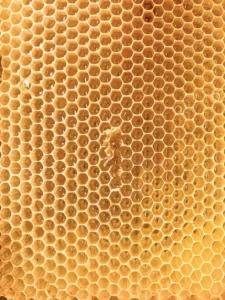Table of Contents
Introduction
When it comes to sports success, athletes not only focus on their psychophysical health, but also their victories. A good source of food is essential for athletes to perform at their best, and one surprising option is honey. In recent years, more and more athletes have been turning to honey as a natural alternative to dextrose. This article will explore the benefits of honey for athletes and its positive effects on exercise performance.
The Benefits of Honey for Athletes
Honey offers several benefits for athletes due to its high nutritional content. It is quickly absorbed into the lymphatic system, which allows it to pass into the blood and tissues efficiently. This makes honey an ideal source of energy for athletes and intellectuals, as well as those recovering from illness.
Honey’s Role in Increasing Strength and Endurance
Honey is often used in sports to increase strength and endurance. It can be consumed 15 minutes before physical activities in the amount of 60-80 grams. Some benefits of honey for athletes include:
- Honey satisfies all the requirements before a competition, reduces effort during the match, and promotes quick recovery after it.
- Honey releases a lot of energy even in small quantities due to its high caloric value.
- Athletes generally tolerate honey better than other energy-boosting supplements.
- Honey is pure, free of microorganisms and artificial irritants.
- Honey is a popular form of sugar among athletes due to its pleasant taste and caloric content.
Honey as a Natural Doping Source
Honey is considered a natural form of doping because it provides a surge of strength, reduces fatigue, and enhances physical activity. This effect was recognized by the ancient Greeks and Romans, who gave honey to soldiers and athletes before battles and competitions. Honey was also consumed by competitors at the ancient Olympic Games before participating in disciplines that required long-term effort.
Honey for Recovery
For athletes who train intensively, fast recovery is crucial. Honey is often included in the daily diet of athletes because it helps compensate for the physical energy expended during training and competitions. Research studies have shown that athletes who consume honey experience improved physical condition, oxygen consumption, and hemoglobin levels. Additionally, honey aids in reducing lactate levels in the blood, improving indicators of dynamometry, spirometry, and pneumotachometry. This leads to better results and overall restfulness for athletes.
Honey as a Supplement in Sports Nutrition
Honey is a valuable supplement in sports nutrition due to its unique properties. It contains vitamins, minerals, and other compounds that are beneficial for athletes. Some of these include:
- Chromium: Honey is extremely rich in chromium, a mineral necessary for breaking down carbohydrates. This reduces the side effects of consuming higher amounts of simple sugars.
- Amino Acids: Honey contains essential amino acids that the human body cannot produce. Although the amount of amino acids in honey is not enough to fulfill the body’s requirements, they can be obtained from other sources.
- Flavonoids: Honey contains flavonoid compounds that act as antioxidants and have ergogenic properties. These compounds help enhance exercise performance.
- Carbohydrates: The majority of honey’s nutritional composition is carbohydrates. Its glycemic index (GI) varies, but it is a valuable source of easily degradable carbohydrates that are important for endurance exercises.
Scientific Studies on the Benefits of Honey for Exercise Performance
Several scientific studies have been conducted to evaluate the effect of honey on exercise performance. These studies compared honey to other popular forms of carbohydrates used by athletes. Three double-blind, placebo-controlled studies conducted at the University of Texas and led by Dr. Richard Kreider showed positive results:
- The first trial involved 71 athletes who consumed various carbohydrate gels, including honey and a placebo. Results showed that honey produced only mild blood sugar and insulin increases, outperforming dextrose.
- The second trial studied 39 weight-trained women and men who consumed a protein shake blended with different carbohydrates after an intensive workout. The honey-sweetened “muscle shake” was the only one to sustain blood sugar levels over two hours post-exercise.
- The final trial focused on nine competitive cyclists who took honey, glucose, or a placebo gel before and during a simulated 40-mile race. The honey gel significantly increased power and speed, equaling the performance of dextrose.
These studies indicated that honey is an excellent carbohydrate for endurance athletes. They also revealed that taking relatively small amounts of honey during exercise was sufficient to improve performance. Additionally, honey has been shown to positively regulate stress and reproductive hormones, improve the immune response, and enhance bone health.
Recipes and Recommendations for Incorporating Honey into Sports Nutrition
There are several ways to incorporate honey into sports nutrition to maximize its benefits. Here are some recipes and recommendations:
- Honey and Milk Shake: Add 1 tablespoon of honey to 300 ml of low-fat warm milk and a sliced banana. Blend everything together and drink after training.
- Honey and Lemon Juice Drink: Mix 1 tablespoon of honey with freshly squeezed lemon juice and water. Drink after training for a refreshing and energizing boost.
- Honey and Nuts Power Mix: Mix 50 grams of manuka honey with 30 grams of various nuts. This power mix can stimulate anabolic processes and provide a natural source of energy.
- Honey and Coffee Extract Mixture: This mixture is used by special units in America that require superhuman efforts. It is a combination of honey and coffee extract that provides a significant boost in performance.
Remember to consume honey in moderation and consult with a healthcare professional or sports nutritionist for personalized recommendations based on your specific needs.
Conclusion
Honey offers several benefits for athletes, including increased strength and endurance, rapid recovery, and improved exercise performance. Its high nutritional content and unique properties make it a valuable supplement in sports nutrition. Scientific studies have shown that honey can effectively enhance exercise performance when compared to other carbohydrate sources. Incorporating honey into sports nutrition can provide athletes with a natural and effective way to fuel their bodies and achieve optimal results. Remember to choose high-quality honey and consume it in moderation to reap its full benefits.
External Links:



